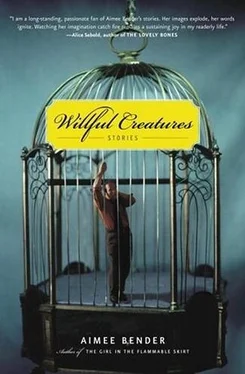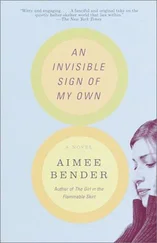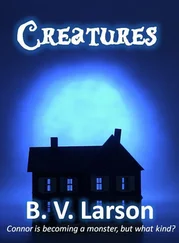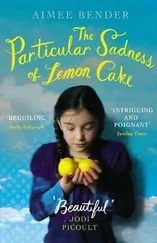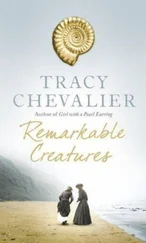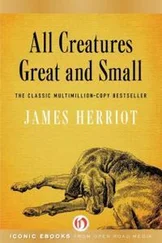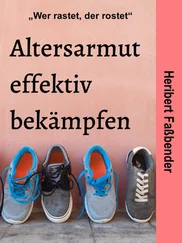Aimee Bender - Willful Creatures
Здесь есть возможность читать онлайн «Aimee Bender - Willful Creatures» весь текст электронной книги совершенно бесплатно (целиком полную версию без сокращений). В некоторых случаях можно слушать аудио, скачать через торрент в формате fb2 и присутствует краткое содержание. Год выпуска: 2006, Издательство: Anchor Books, Жанр: Современная проза, на английском языке. Описание произведения, (предисловие) а так же отзывы посетителей доступны на портале библиотеки ЛибКат.
- Название:Willful Creatures
- Автор:
- Издательство:Anchor Books
- Жанр:
- Год:2006
- ISBN:нет данных
- Рейтинг книги:4 / 5. Голосов: 1
-
Избранное:Добавить в избранное
- Отзывы:
-
Ваша оценка:
- 80
- 1
- 2
- 3
- 4
- 5
Willful Creatures: краткое содержание, описание и аннотация
Предлагаем к чтению аннотацию, описание, краткое содержание или предисловие (зависит от того, что написал сам автор книги «Willful Creatures»). Если вы не нашли необходимую информацию о книге — напишите в комментариях, мы постараемся отыскать её.
Willful Creatures — читать онлайн бесплатно полную книгу (весь текст) целиком
Ниже представлен текст книги, разбитый по страницам. Система сохранения места последней прочитанной страницы, позволяет с удобством читать онлайн бесплатно книгу «Willful Creatures», без необходимости каждый раз заново искать на чём Вы остановились. Поставьте закладку, и сможете в любой момент перейти на страницу, на которой закончили чтение.
Интервал:
Закладка:
The four were similar, but you could distinguish them by the distribution of potato marks on their bodies, and so she named them One, Two, Three, and Four. Two also had a tiny wedge missing from its kneecap, in the shape of a cut square.
When she left to go mail a letter or pick up some groceries, the potato visitors went to the windows like dogs do, and watched her walk off. When she returned, they were back at the window, or still at the window, waiting. Their big potato heads turning as she walked up and opened the door. Eyes blinking fast to welcome her home. She went through her mail and fell into a corner of the rotting old red sofa and they walked over and put rough hands on her shoulders, her knees, her hair. The five of them spent the winter like that, together in the small house, watching the snow fall. She tried to send them outside, to find their fortune, but they always turned right around and came back. They only slept when she slept, making burbling noises like the sound of water warming up. They were dreamless, and woke once she awoke.
On the first day of spring, the bountiful neighbor came over with lilies woven into her hair, asking to borrow some matches. The woman had the four hide in the bathroom. She tried to talk to the neighbor but had very little to say and instead the neighbor filled the small house with chatter. The neighbor was in love! The neighbor liked the weather! The neighbor asked to use the bathroom and the woman said sorry, her bathroom was broken. The neighbor talked at length about broken bathrooms, and how difficult, and if she, the woman, ever needed to use her bathroom, she was welcome anytime. Thank you. You’re welcome! When the neighbor left, the woman’s ears were ringing. She went into the bathroom to pee and was somehow startled to see the four still in there, blinking beneath the silver towel rack.
“Get,” she said, brushing them off. “Get away from me. Go!”
They bumped out the door and waited in the living room. She put them in the closet and went about her day, and there they stayed, waiting, until the guilt drove her to let them out. The following morning, after a sleepless night where they gazed at her with white pupils, she pushed them out the front door to the side of the house where there was a strip of dirt that the neighbor could not see. The woman picked up her gardening shovel and dug a hole in the earth, as deep as her knee. She looked at One.
“Get in,” she said.
He stepped into the hole.
“Lie down,” she said. He looked up at her with wondering eyes and she filled the hole with dirt over him.
“Go back to where you came from,” she said, as she shoved more dirt over his grayish body. She looked at Two. Built another hole. “Go,” she said, “and don’t you come out,” and her voice shook as she said it. Two hopped in without pause. As did Three and then Four. She filled the holes up fast and then strode into her house and locked the door. Fine, she said to herself. Fine. Fine. FINE. She ate dinner alone and slept alone and woke alone, and the cast-iron pot was empty when she checked. They wouldn’t fit in it anymore anyway. She couldn’t even eat them now, could she? They would just walk right out of the oven, right out of her mouth. Go back to where you came from, she told herself. Thank you, Goodbye, Excuse me. She swept endlessly, and trucks moved past her window.
In the morning, with spring rolling off the hillsides in bright puffs, she went outside to the strip of dirt. No movement at all. She set a rock at each site, one rock for One, two for Two, etc. She sat for long spells, over the course of the next week, and watched the sky drift overhead. It all felt very familiar, and she recognized the shape and texture of her life before, but it was as if someone had put her old life in the laundry and washed it wrong. The color was slightly off. The sleeves were now too short.
At the end of the week, she kicked off the stones and got out her big shovel. Her neighbor was hanging up clothing on her laundry line, green dresses and blue scarves. The wind whisked her hair around.
“How’s that broken bathroom?” she yelled.
“Oh,” said the woman. “Well. There never was any broken bathroom.”
The neighbor raised her eyebrows.
“I was hiding my children from you,” said our woman.
“Children? What children?” said the neighbor, wrapping her neck in a rose-colored scarf. “I had no idea! How sweet! How many? Where are they?”
“I buried them,” said the woman, waving her shovel.
“You what?”
“I buried them,” said the woman. “And now I am going to dig them back up.”
She went to the side of the house, and dug up One first. He sat right when the shovel touched his arm and dirt fell from his face and legs. He blinked at her, as if no time had passed at all, and she held out her hand and pulled him out. She dug up Three, and Four. She thought briefly of leaving Two there forever, letting weeds grow all over him, but the other three were looking at his spot expectantly, so she dug up Two too.
The woman looked at each in turn. The layers of dirt became them.
“Okay,” she said.
They stepped into her open arms, solemn as monks. As they nestled and burrowed into her neck, the neighbor poked her head around corner of the house, draped in a clean sheet.
“Oh!” she said. “Look at this!”
The woman glanced over with Three on her back and Four clinging to her shoe.
“I didn’t think you could be serious,” said the neighbor.
“I am always serious,” said our woman.
The neighbor crouched down and smiled at Four. “Are you okay, honey?” she asked. Four looked past the neighbor and then climbed onto our woman’s back, pushing off One who fell lightly to the ground.
“They look so pale,” said the neighbor, her voice unsure where to drop, into which voice box positioned between curiosity and righteousness. “You might want to call a doctor,” she said. “I know a good one, who can be here within the hour.”
Four curled his hand around our woman’s neck, and began tugging on the lobe of her ear. Our woman barely smiled at her neighbor. It was a smile not made of pity, and it was not made of envy, even though the two had merged, for years now, on her lips. This smile instead was built of a weariness, of the particular quiet of the body after a long bout of weeping or illness. Certain things endured, and somehow she had ended up with four.
From the ground, Two leaped up to swing gently from her wrist.
“They need no doctors,” she said, walking to her front door. “Trust me.”
Inside, the woman dressed the group in clothing even though they had no hair or blood and would never look normal, dressed or undressed. Still she put them in pants and shirts she had sewn herself; in hats and shoes and belts.
She took their slow-moving hands and walked out the door again. They blinked and ducked under the lemony March sun. Already, like clockwork, the very first buds of green were pushing up from the soil, a ring of nasturtiums and dead potato babies to border her house. Halfway down the block, she turned and glanced at the neighbor, who was wearing a straw hat now, planting tomatoes. The four glanced with her. Thinking of the doctor had been a kind idea; she would thank the neighbor later. Living next to abundance was not so awful after all. It was contagious, in its own way.
The rest of the town was quiet and drowsy as the five walked past the cemetery, where they waved to the headstones, and over to the edge of the county. The air smelled ripe with spring. At the county line, the potato children stood by the fence posts and laid their hands on the dirt. They seemed interested, even pleased, by the new setting. They had no traumatic recollections of their past week buried alive. Instead, they brought fingers dusted with soil to their noses and smelled appreciatively.
Читать дальшеИнтервал:
Закладка:
Похожие книги на «Willful Creatures»
Представляем Вашему вниманию похожие книги на «Willful Creatures» списком для выбора. Мы отобрали схожую по названию и смыслу литературу в надежде предоставить читателям больше вариантов отыскать новые, интересные, ещё непрочитанные произведения.
Обсуждение, отзывы о книге «Willful Creatures» и просто собственные мнения читателей. Оставьте ваши комментарии, напишите, что Вы думаете о произведении, его смысле или главных героях. Укажите что конкретно понравилось, а что нет, и почему Вы так считаете.
